
"Snow White" is a German fairy tale, first written down in the early 19th century. The Brothers Grimm published it in 1812 in the first edition of their collection Grimms' Fairy Tales, numbered as Tale 53. The original German title was Sneewittchen; the modern spelling is Schneewittchen. The Grimms completed their final revision of the story in 1854, which can be found in the 1857 version of Grimms' Fairy Tales.
A major subset of the Discworld novels of Terry Pratchett involves the witches of Lancre. The three main witches introduced in 1988's Wyrd Sisters — crone Esme Weatherwax, mother Nanny Ogg and maiden Magrat Garlick — are a spoof on the Three Witches in Shakespeare's Macbeth, and a tongue-in-cheek reinterpretation of the Neopagans' Triple Goddess. The three witches are portrayed as more sensible and realistic than the often-foolish residents of the Discworld, and Granny Weatherwax "especially tends to give voice to the major themes of Pratchett's work."
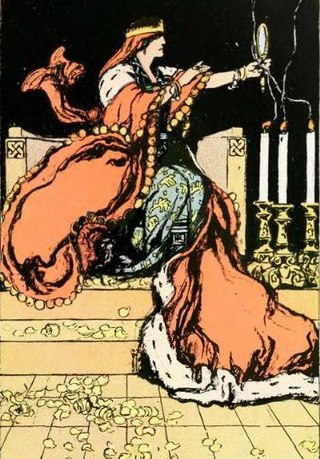
The Evil Queen, also called the Wicked Queen or just the Queen, is a fictional character and the main antagonist of "Snow White", a German fairy tale recorded by the Brothers Grimm; similar stories exist worldwide. Other versions of the Queen appear in subsequent adaptations and continuations of the fairy tale, including novels and films. One particularly notable version is Disney's depiction, sometimes known as Queen Grimhilde. The character has also become an archetype that inspired unrelated works.
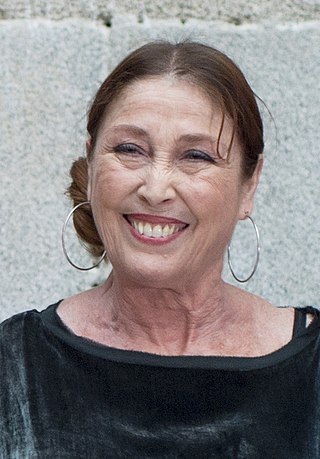
Verónica Forqué Vázquez-Vigo was a Spanish stage, film and television actress. She was a four-time Goya Award winner, the most award-winning actress alongside Carmen Maura. She had a knack for characters "between ridiculous and tender, stunned and vehement".
Horror films in Mexico form part of cinema of the country.
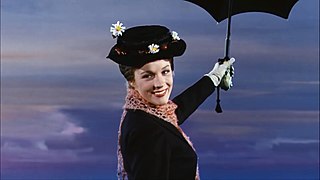
Mary Poppins is a fictional character and the eponymous protagonist of P. L. Travers' books of the same name along with all of their adaptations. A magical English nanny, she blows in on the east wind and arrives at the Banks home at Number 17 Cherry Tree Lane, London, where she is given charge of the Banks children and teaches them valuable lessons with a magical touch. Travers gives Poppins the accent and vocabulary of a real London nanny: cockney base notes overlaid with a strangled gentility.
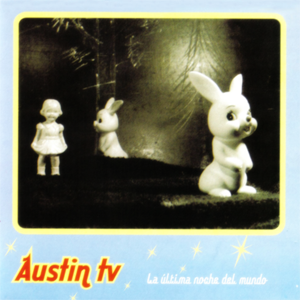
La última noche del mundo is the debut album by Mexican post-rock band Austin TV.

Hasta el viento tiene miedo, known in English as Even the Wind is Afraid and The Wind of Fear, is a 1968 Mexican gothic supernatural horror film, written and directed by Carlos Enrique Taboada. It is considered a cult movie in México and has been credited as having revitalized the Mexican horror genre.

El Libro de piedra is a 1969 Mexican supernatural horror film, written and directed by Carlos Enrique Taboada. This film was remade in 2009.

Olvidarte Jamas is a 2005 telenovela made by Venevision International in Miami that lasted 118 episodes. The telenovela starred Venezuelan-American actress Sonya Smith and Mexican actor Gabriel Porras. The telenovela was written by Veronica Suarez and Omaira Rivero. It was executively produced by Peter Tinoco and Ana Teresa Arizmendi. It aired on Univision in the United States. The theme song "Olvidarte Jamas" was sung by Mexican singer Pablo Montero.

ParaNorman is a 2012 American stop-motion animated comedy horror film directed by Sam Fell and Chris Butler, and written by Butler. Produced by Laika, the film stars the voices of Kodi Smit-McPhee, Jodelle Ferland, Bernard Hill, Tucker Albrizzi, Anna Kendrick, Casey Affleck, Christopher Mintz-Plasse, Leslie Mann, Jeff Garlin, Elaine Stritch, Tempestt Bledsoe, Alex Borstein, and John Goodman. It is the first stop-motion film to use a 3-D color printer to create character faces, and only the second to be shot in 3-D. In the film, Norman Babcock, a young boy who can communicate with ghosts, is given the task of ending a 300-year-old witch's curse on his Massachusetts town.
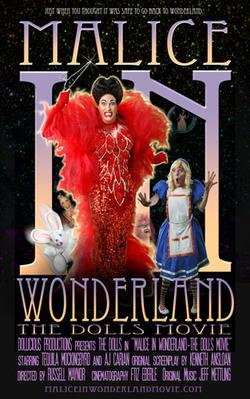
Malice in Wonderland: The Dolls Movie is a 2010 drag comedy produced by Delicious Productions LLC, directed by Russell Maynor, written by Kenneth Ansloan and performed by The Dolls, the notorious drag troupe from Albuquerque, New Mexico. It is a psychedelic mash-up of Lewis Carroll's Alice's Adventures in Wonderland and Mommie Dearest, with additional parody references to The Wizard of Oz, Mary Poppins, A Clockwork Orange and numerous other films. It is based on the original 2008 stage show of the same name and performed by The Dolls.
Aurora Walker García (1904–1964) was a Mexican film actress. She appeared in more than a hundred and twenty films during her career. She was married to Mexican actor Julio Taboada until her death 2 January 1964. Their son is Mexican movie writer and director Carlos Enrique Taboada.
Morir para vivir is a Mexican telenovela produced by Ana Martín for Televisa in 1989.

Veronica is a 2017 Spanish supernatural horror film directed by Paco Plaza which stars Sandra Escacena alongside Claudia Placer, Bruna González, Iván Chavero and Ana Torrent.

Xuxa e os Duendes 2: No Caminho das Fadas is a 2002 Brazilian fantasy adventure children's film directed by Paulo Sérgio de Almeida, Rogério Gomes and Márcio Vito and written by Vivian Perl and Wagner de Assis. It is the sequel to Xuxa e os Duendes (2001). Xuxa Meneghel, Ana Maria Braga, Debby Lagranha, Emiliano Queiroz, Tadeu Mello and Guilherme Karan reprise their respective roles from the first film, joined by Luciano Szafir, Betty Lago, Vera Fischer, Deborah Secco, Thiago Fragoso. In this sequel, Kira (Xuxa), the elf of light, is in charge of saving her friends and mankind from a curse that would petrify the hearts of lovers and end love on the face of the Earth.
Carlos Enrique Taboada Walker was a Mexican screenwriter and director. He is best known for his supernatural Terror and suspense films including Hasta el viento tiene miedo, Más negro que la noche, Veneno para las hadas, and El Libro de piedra. He won two Ariel Awards for Best Picture and Best Director for his 1984 film Poison for the Fairies.
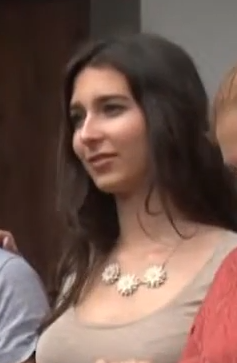
Lola Rodríguez Díaz is a Spanish actress, model, and LGBT rights activist.

Carmen García de Merlo is a Spanish lawyer, nurse and civil servant of Madrid City Council. In 2018, she became President of COGAM Lesbian, Gay, Transsexual and Bisexual Collective of Madrid, being the first transgender woman to preside over the organization.

Carmen Jedet Izquierdo Sánchez, known simply as Jedet, is a Spanish actress, singer, internet celebrity and transgender LGBT activist.
Steven Wilson was inspired by this movie and named a track after it while writing and recording in México for his Insurgentes album, his first solo project after Porcupine Tree.















